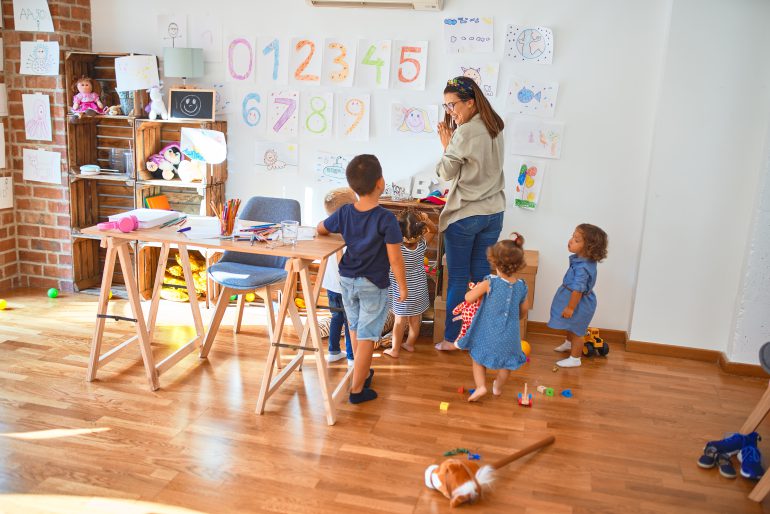Brainport, the region of Eindhoven and Southeast Brabant, faces two problems. One is a chronic shortage of healthcare staff in daycare centers, which is an issue for working parents who must return to work; two, a surplus of expat partners who accompany their better halves to the Netherlands and who are sitting idly at home without work and disconnected from Dutch society. In April this year, Expat Spouses Initiatives (ESI) came up with a solution that would figurately ‘hit two birds with one stone’.
Tech and IT mecca of the Netherlands
Brainport is a tech and IT hub centred around the city of Eindhoven, with more than 72,000 employees working for 5,000 companies that geared to the development of new technologies. These businesses range from small scale start-ups to more renowned companies including Philips, ASML and Signify. More than 40% of the Netherlands’ research and development is conducted in Brainport -hence the name. Worldwide, 2% of all patents originate in Brainport.
Brainport attracts a highly educated community from around the world, usually men. According to a 2023 report by Statistics Netherlands (CBS), 72% of the expats in the Netherlands is male. Approximately 50% of these knowledge migrants have a highly skilled spouse or partner that wants to enter the Dutch workforce yet feels isolated and disconnected through staying at home without a job.
Staff shortages
At the same time, in the Brainport region, six daycare centres for children aged three months to four years old, are facing chronic staff shortages. ESI saw a solution to the problem and launched a pilot program that employs fourteen expat partners at the six childcare facilities, and hires and trains them for job vacancies in the childcare. While most expat spouses have difficulty entering the Dutch labour market, this is the ideal solution. It matches the goal of ESI, which was founded in 2014 by two women who wished to address the disconnection and isolation of expat partners and integrated them into the local communities in and around Eindhoven.
The participants must first complete a four-month training program. According to Lara Poulson, lecturer and project leader at Summa College in Eindhoven, ‘the expat partners are very motivated to get started’. Firstly, they are trained as group assistants and will work eight hours a week at a daycare centre in the region of Eindhoven. Secondly, they will have to take Dutch lessons, as the spoken language in the daycare centres is Dutch. After the four-month program, the participants receive the certificate ‘Pedagogical Climate in Childcare’, the equivalent of a Dutch secondary vocational education and training degree.
Happily working again
Until now, all the participants are women, including Divya Madhuri Reddy, originally trained as a paediatric nurse. She stated in an interview for broadcaster Omroep Brabant in April that she had been living in the Netherlands for nine years, but spent most of her time at home, not making use of her professional skills. Now, with the pilot program she can work again. Another participant is Amanda Flynn, an American, who accompanied her husband who is employed at ASML. After studying psychology and working at a youth shelter in Boston, Flynn is happy to work again.
In fact, a quarter of daycare facilities in the Netherlands faces staff shortages. If the pilot is successful, it may be expanded to other daycare centres. Another sector of the economy suffering serious staff shortages is the healthcare sector, where more than 50,000 vacancies cannot be filled. The programme may therefore be expanded to this sector as well, offering yet more opportunities for expats to use their skills and make a contribution to Dutch society.
Written by Benjamin B. Roberts
